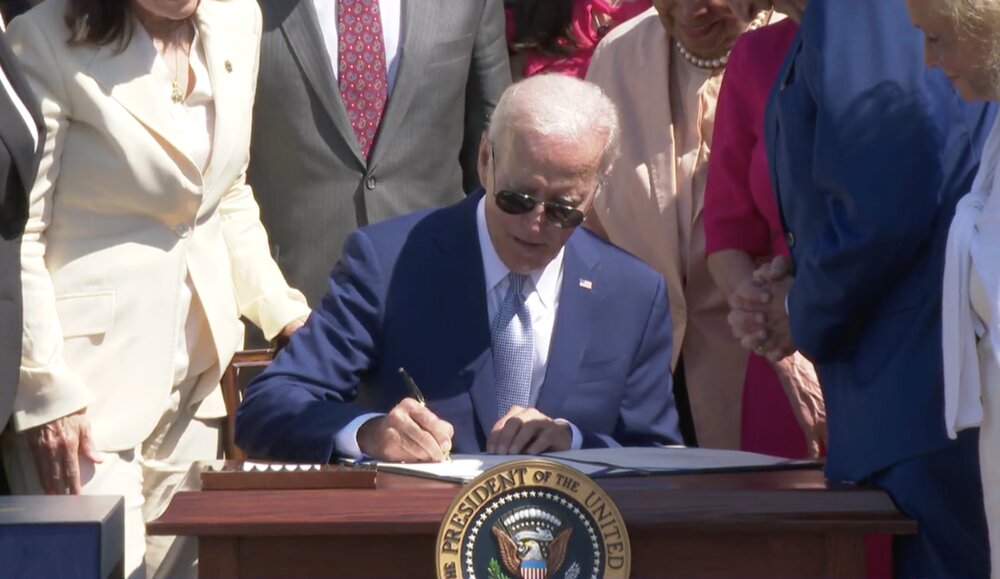
The United States President Joe Bidenhas ratified with his signature the passage of the CHIPS Act and Sciencewhich has a budget of 280,000 million dollars and includes a $52.7 billion scholarship and grant package of dollars allocated to the semiconductor manufacturing industry in the United States. It is one more step for the country as it seeks to reduce its dependence on Asian chipmakers and bolster the US chipmaking sector.
Manufacturing incentives are the ones that take most of the subsidies approved in the law. In total, 39,000 million dollars are allocated for this purpose. But there is also another 2,000 million for chipmakers with a certain age but that are critical for systems used in sectors such as automotive and defense. Another $13.2 billion will go toward research and development of workers. Finally, another $500 million will be for network and supply chain security.
In a statement, Biden recalled that “Semiconductors were invented in the United States, but today only 10% of the world’s total supplies are produced in the United States. And of this percentage, nothing corresponds to the most advanced chips. The CHIPs and Science Act will unlock hundreds of billions more for private investment in the country’s semiconductor sector, including production essential for national defense and for critical sectors«.
In the hours before and after the law’s ratification, two initiatives to expand chip manufacturing in the US that will benefit from the subsidies of this law have already been made public. On the one hand, Qualcomm has extended a chip purchase agreement with GlobalFoundries, which will require the latter to expand its production capacity at its plant in Malta, in the state of New York. On the other, memory maker Micron has pledged to invest $40 billion to increase its manufacturing capacity on US soil.
According to Computerworld, however, not all companies in the semiconductor sector have welcomed this law. Most notably, US-based chip designers and some semiconductor companies that don’t have manufacturing facilities and outsource it to third parties. Companies in these sectors do not agree that the vast majority of funding that will be provided to the sector with this law is intended for manufacturers onlyand not to companies that are dedicated to other areas, such as design.



